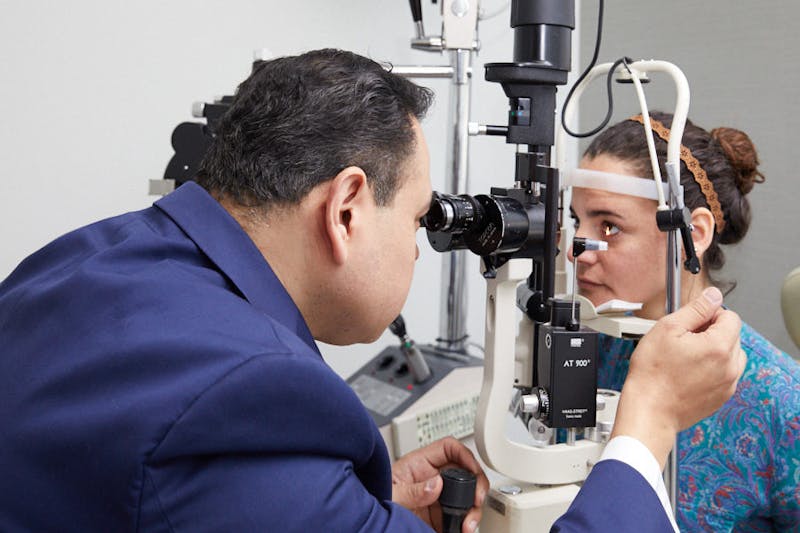
If you’re looking for a permanent solution to your nearsightedness, farsightedness, or astigmatism, you might be considering LASIK. But is LASIK safe in the long term?
Here, we go over some key LASIK facts and examine its efficacy and safety over long periods.
LASIK is safe
There’s a misconception that LASIK is a complicated surgery. In reality, LASIK is one of the safest and most effective long-term eye procedures you can opt for. In fact, it only takes about 15 minutes to correct your vision this way, and the process is pain-free.
LASIK is a three-step procedure that’s easy to understand. Your ophthalmologist will begin by numbing your eyes with drops. A small, round flap is created on your cornea using a specialized laser called a microkeratome. Your surgeon will access your stroma (underneath your cornea) by gently pushing this flap back.
Step two is to use an excimer laser to reshape the structure of your stroma. In this section of the surgery, a UV ray removes trace amounts of excess tissue around your cornea. This accommodates your retinas more efficiently, and so enhances your eyes’ accuracy and focus.
The final step is to close the flap created on your cornea. Once it is repositioned, it will naturally close without any stitches or further surgery.
You’ll experience a significant improvement in your vision immediately after your treatment. It may take a day or two for your eyes to stabilize. However, even in recovery, your eyesight will continue to enhance. In almost all cases, the result of LASIK is 20/20 vision — a safe, long-term effect.
LASIK is permanent for most people
As many as 98% of LASIK surgeries produce permanent not just long-term results in a safe manner. In a minority of cases, patients may require “touch-ups” but even then the odds are in your favor.
Once you’ve undergone this procedure, your eyes will continue to improve in the years following it. The likelihood of enhancement surgery only comes into play on average ten years after the initial treatment.
This not to say that LASIK surgery loses efficiency over a long term period. Enhancement surgery is sometimes needed because your eyes change as you age. For most people, this won’t be a problem, but some patients regrow the tissue that initially interfered with their vision.
Don’t be disheartened, though. If you fall into the latter category, your eyesight will never be as bad as it was before the laser correction. Think of a touch-up as maintenance, rather than a repeat procedure.
Is LASIK right for you?
As effective, safe and long-term LASIK is as a solution, it remains a surgical procedure and therefore may not be suitable for everyone. Before you book an appointment, consult an ophthalmologist to determine if you are a good candidate for safe LASIK surgery.
The list of requirements isn’t long and, for the most part, follows the norms of all surgeries. Pregnancy, degenerative or autoimmune illnesses, and diabetes will disqualify you as a candidate. You won’t be able to apply for LASIK if you are recovering from a different surgery.
Your age may disqualify you as some states have impositions restricting children younger than 18 from undergoing this treatment. Certain medications, like immunosuppressants, may inhibit your recovery, and so ophthalmologists will advise against LASIK.
So what makes a good candidate? For starters, your vision must be stable and healthy. The size of your pupils and the thickness of your corneas must be compatible with the lasers used for corrections. Your prescription should be within reasonable limits as well, otherwise, LASIK could be ineffective or unpredictable.
LASIK could be your path to a safe, long-term solution to your vision woes. To find out if you’re a suitable candidate, please get in touch with us today. Our team of experienced ophthalmologists is available for appointments and evaluations.
